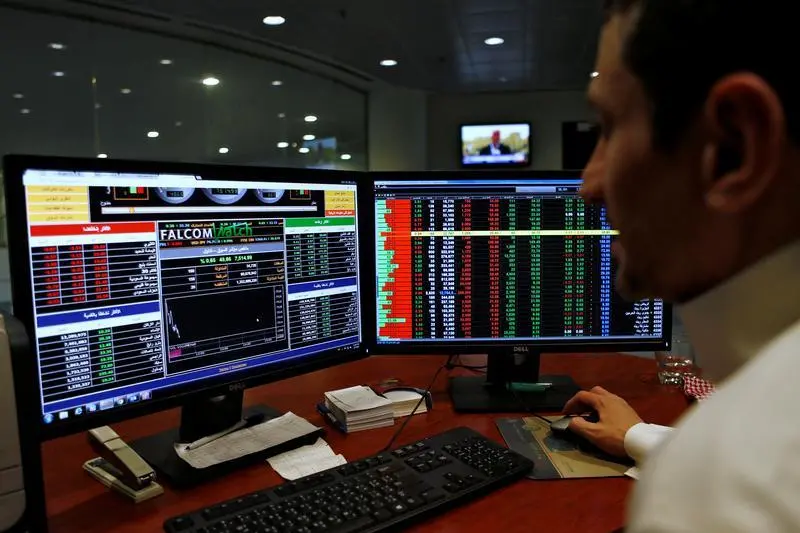PHOTO
Saudi Arabian Shares fell in early trade on the last day of the 2020, but were set to close the session with a yearly gain, overcoming the first-quarter shock triggered by a global recession fears on COVID-19 and the Saudi-Russia oil price war.
Other Gulf markets were set to end the year with losses except Qatar and Abu Dhabi, which were trading with marginal yearly gain of 1.1% and 0.3%, respectively. All Gulf stock markets had fallen between 13% and 36% in the first quarter, with Bahrain extending the losses to the another. The markets, however, trimmed their losses partially in subsequent quarters on government stimulus and economic recovery hopes due to vaccine progress.
On Thursday, Saudi Arabia's main index which was set to extend its yearly gain to a consecutive fifth year, was down 0.3%, led by losses at Samba Financial Group and Saudi Aramco falling 1% and 0.3%, respectively.
Oil giant Aramco, which fell about 15% in the first quarter, is now about a percent down on a yearly basis, but outperforming its global peers.
The Abu Dhabi index edged up 0.1% as telecoms major Etisalat gained 0.2%, while Abu Dhabi Islamic Bank fell 1.5%.
The Dubai index was flat. Emaar Properties lost 0.3% and Dubai Islamic Bank was up 0.2%.
Dubai stocks were the worst hit in the first quarter, falling 36%, and are down nearly 9% in year-to-date.
The Qatari index gained 0.1%, with Industries Qatar rising 1%.
Kuwait's premier market index, the best performer last year in the Gulf region, dropped 0.2% and was down 13.3% on yearly basis.
Bahrain All Share Index was flat and set to see first yearly loss in last five years.
In Oman, the index, which is down 8% in year-to-date extending losses to a consecutive fourth year, was up 0.2%.
(Reporting by Maqsood Alam in Bengaluru; editing by Uttaresh.V) ((Maqsood.Alam@thomsonreuters.com;))





















